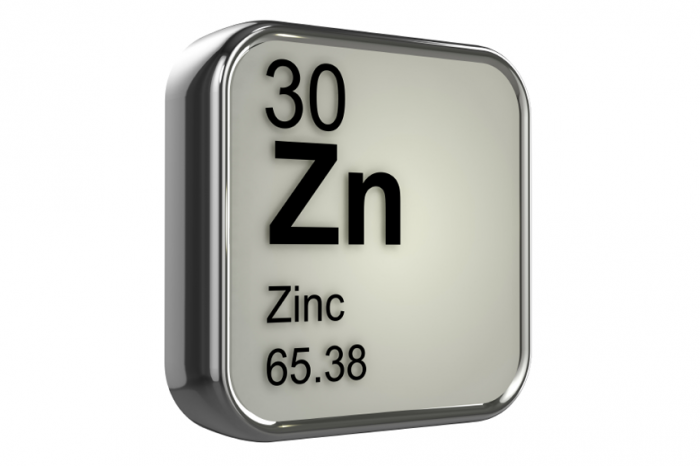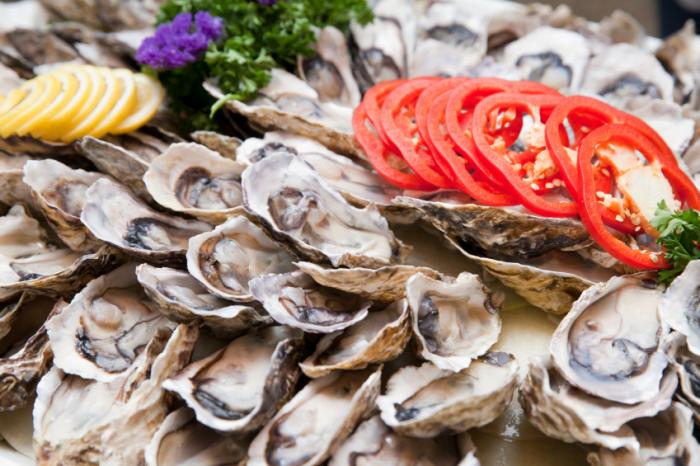For Doctors
|
What are the health benefits of zinc?
15.02.04 17:34
|
|---|
|
What are the health benefits of zinc? Zinc is an important mineral required for countless reactions and functions in the body, including proper growth and immune function, DNA synthesis, cell division and cellular metabolism. The highest concentrations of zinc in the body are found in the liver, pancreas, kidney, bone, muscles and eyes. The World Health Organization has identified zinc deficiency as one of the top factors contributing to disease in underdeveloped countries. This MNT Knowledge Center feature is part of a collection of articles on the health benefits of popular vitamins and minerals. It provides an in-depth look at recommended intake of zinc, its possible health benefits, foods high in zinc and any potential health risks of consuming zinc. Contents of this article: Recommended intakeThe Recommended Daily Allowance (RDA) for zinc is 8 milligrams per day for adult females and 11 milligrams per day for adult males.  Zinc is required for countless reactions and functions in the body, including proper growth and immune function, DNA synthesis, cell division and cellular metabolism. Adequate zinc intake is especially important for children because even mild zinc deficiency can impede growth, increase risk of infection and increase risk of diarrhea and respiratory disease. The recommended intake for children 1-8 years old ranges from 3-5 milligrams, increasing as the child gets older. Males 9-13 years old require 8 milligrams of zinc per day. After the age of 14, the requirement increases to the 11 milligrams per day that is required for all adult males. For females over the age of 8, the requirement stays stable at 8 milligrams per day, except for ages 14-18, where the recommendation increases to 9 milligrams per day. Pregnant and lactating women have an increased need for zinc at 11-13 milligrams per day, depending on age. Along with growth retardation, zinc deficiency can cause delayed wound healing, decreased taste perception, skin lesions, night blindness and hair loss. Zinc deficiency has also been linked with neuronal plasticity defects and impact behavior in children with ADHD.5 Zinc supplements are available, but it is best to obtain any vitamin or mineral through food. It is not the individual vitamin or mineral alone that make certain foods an important part of our diet, but the synergy of nutrients in that food working together. It has been proven time and again that isolating certain nutrients in supplement form will not provide the same health benefits as consuming the nutrient from a whole food. First focus on obtaining your daily zinc requirement from foods, then use supplements as a backup if necessary. Possible health benefits of consuming zincCommon coldAlthough zinc deficiency is known to depress immune function, the widely used zinc gluconate lozenges and chews often used to prevent or treat the common cold have not yet been found to be an effective treatment in studies and trials in those with normal zinc status. Proper growthZinc deficiency was first discovered in adolescent boys suffering from mild anemia, short stature and delayed sexual maturation. Their diets were high in unrefined cereals and unleavened breads, both high in phytate, which competes with zinc for absorption. Once zinc deficiencies were corrected, the boys grew as much as 5 inches per year. Infant and children's foods such as ready to eat cereals are now fortified with zinc. Decreased risk of age-related chronic diseaseA study from researchers at Oregon State University have found that improving zinc status through diet and supplementation may reduce the risk of inflammatory diseases. Using cell cultures, and a mouse model, researchers were able to show that age-related reductions in zinc status may lead to impaired immune system function and systemic inflammation, both contributing factors to chronic diseases. Adults 60 years of age and older from food-insufficient households have a significantly higher risk of zinc deficiency, reporting an intake of less than 50% of the Recommended Daily Intake for zinc compared with adults from food-sufficient households.2 Fighting age-related macular degeneration (AMD):AMD is an age-related disease that gradually deteriorates the part of the eye responsible for clear central vision, significantly decreasing reading ability and facial recognition. Zinc supplementation has been shown to the decrease risk of developing more advanced AMD by 25% and lower risk of central vision loss by 19%. Wound healingZinc plays a role in maintaining skin integrity and structure. Patients experiencing chronic wound or ulcers often have deficient zinc metabolism and lower serum zinc levels. Those with low levels should be treated with increased zinc. However, research has not consistently shown that use of zinc sulfate in patients with chronic wounds or ulcers is effective at improving healing rate. FertilitySeveral studies and trials have linked poor zinc status with low sperm quality. For example, one study in the Netherlands found that subjects had a higher sperm count after zinc sulfate and folic acid supplementation.3 In another study, researchers concluded that poor zinc intake may be a risk factor for low quality of sperm and male infertility. Foods sources of zincThe best sources of zinc are beans, animal meats, nuts, fish and other seafood, whole grain cereals and dairy products. Zinc is also added to some breakfast cereals and other fortified foods. The typical western diet allows for adequate zinc intake, at an average range of between 10-15 milligrams per day. Several dietary factors can decrease zinc absorption. Phytates (found in whole-grain breads, cereals and legumes), copper, calcium and folic acid may all reduce zinc absorption. Zinc absorption is increased when consumed with red wine, glucose, lactose or soy protein. Vegetarians may require up to 50% more than the recommended intake of zinc because of low bioavailability of zinc from plant-based foods.  Raw oysters are a valuable source of zinc, containing 14.1 mg per 3 oz.
Potential health risks of consuming zincThe upper limit for zinc in adults is 40 milligrams per day. Ingestion of toxic amounts of zinc is rare, but can cause GI irritation and vomiting.1 High levels of zinc supplementation are known to cause copper deficiency and impair iron absorption. It is the total diet or overall eating pattern that is most important in disease prevention and achieving good health. It is better to eat a diet with a variety than to concentrate on individual nutrients as the key to good health. Written by Megan Ware, RDN, LD, registered dietitian and nutritionist |
